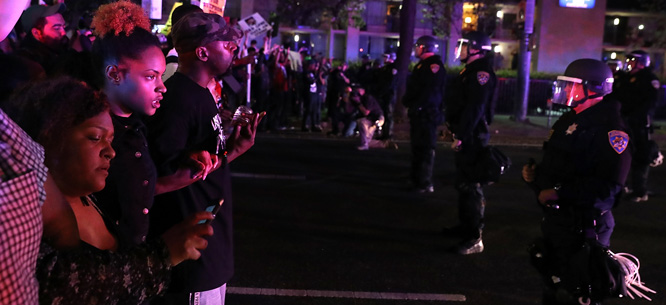Five Years after Ferguson
Five Years after Ferguson
Reflections on the origins and legacy of Black Lives Matter.

Five years ago, Michael Brown was killed by a police officer in Ferguson, Missouri. The ensuing protests around the country brought international recognition to Black Lives Matter, sparking anti-racist movement work that continues to this day.
In her reflection on Black Lives Matter five years after the Ferguson Uprising, Marcia Chatelain writes that “this anniversary is not the occasion to perform an autopsy. . . . The late summer of 2019 will be better spent drawing new life from the struggles that have made it possible to imagine a world in which black lives indeed matter.”
Christian Hosam looks at one of the most important conversations to emerge out of protests against police violence: “how cities and municipalities have become financially dependent on policing black bodies.”
And in a searching historical essay, Colin Gordon examines the patterns of dispossession, disinvestment, and discrimination in and around St. Louis that formed the backdrop to the killing of Michael Brown.




